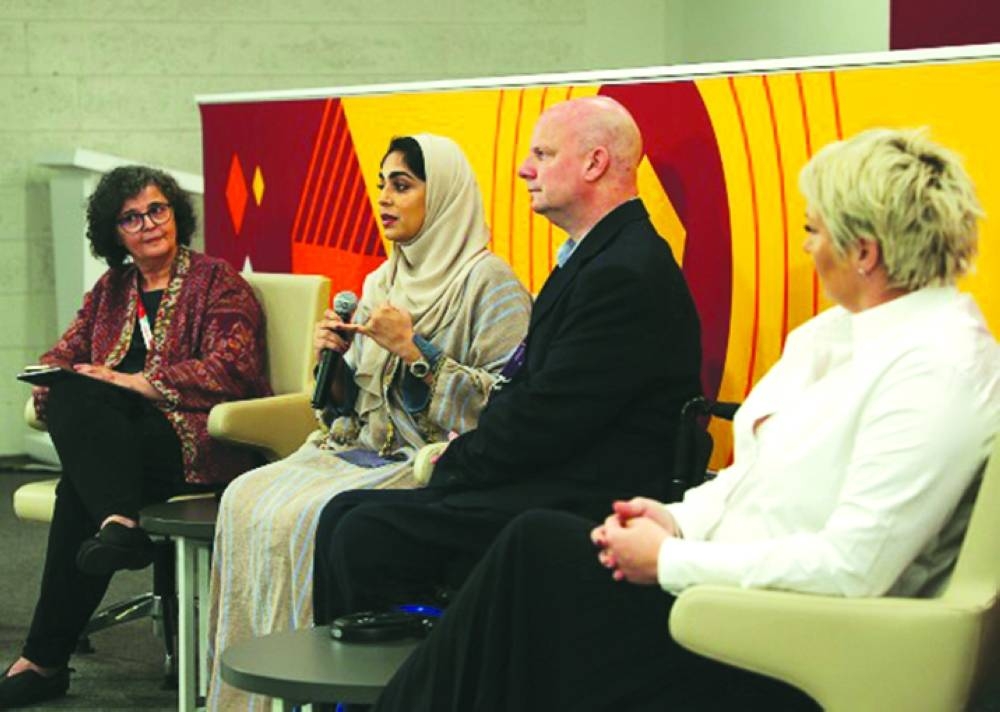Just days into the world’s biggest sporting event, experts from Qatar Foundation (QF) looked at Qatar’s goal of hosting the most accessible tournament in history is on track.
A panel discussion Wednesday included Mark Dyer, accessibility and inclusivity strategist at the Supreme Committee for Delivery & Legacy who spoke about feedback, the event has received.
"It is not just about going to a match – there are lots of other areas that we needed to provide for,” Dyer said. “We've gone beyond looking at what we provide in the stadiums, and that creates a challenge because the more accessible seats we provide in matches, the more demand we create for us and for the rest of the country in terms of accommodation, transportation, and attractions.
"We are seeing a huge number of people with disabilities going to places like the fan festivals, the Corniche, and other areas. So even if you have come over here to experience the matches, you still have places that can offer you calmness and comfort and you still can feel integrated and that you belong to the experience."
With QF supporting the delivery of a truly accessible tournament, experts from the organisation reflected on the accessibility efforts and initiatives that QF has established – from its specialised schools such as Renad Academy and Awsaj Academy, to its Ability Friendly Programme, sensory rooms, audio-descriptive commentary of matches, the Accessibility Volunteers programme and the Qatar for All accessibility guide.
"What we do as an organisation is unlock potential,” said Nihal al-Saleh, programme manager at QF member Earthna, and an accessibility adviser. “With added access, we have added participation, and this is a benefit not only to people with disabilities, but also for the community as we see the transition in the way we talk about accessibility.
"It is a journey, and there will be things that come up with we will address as we go along, but it is not the end of the story. It started before the World Cup, but will continue to go beyond that for a fully accessible Qatar – and it will make a great case study for the world.”
The Education City Stadium hosted its first FIFA World Cup Qatar 2022 match on Tuesday, providing an opportunity to reflect on how accessible the experience was for fans attending the game between Denmark and Tunisia.
"We all enjoy football and events in different ways, so it is important to enable people who come from transport hubs and as they come to the Metro and parking areas – making sure they can access the stadium in a safe and comfortable way, whether through tactile areas for those who may need sensory regulation in their way to the stadium, or by checking access from the mobility perspective," said Brooke Reid, manager of engagement and activation at Education City, QF.
The session also heard from Prof Joselia Neves, associate dean for social engagement and access at QF's Hamad Bin Khalifa University, who said: "As we were preparing for this World Cup, we were touching on areas that had not been addressed before. We started teaching and training experts that are now on the ground delivering services."

Experts at the panel discussion
